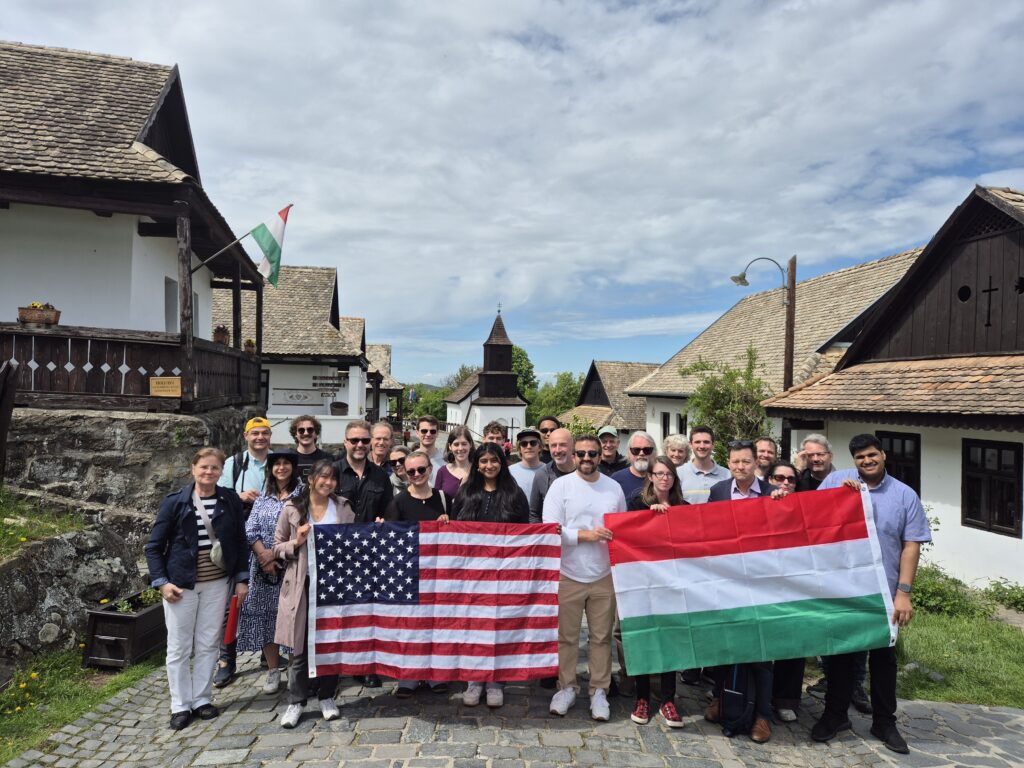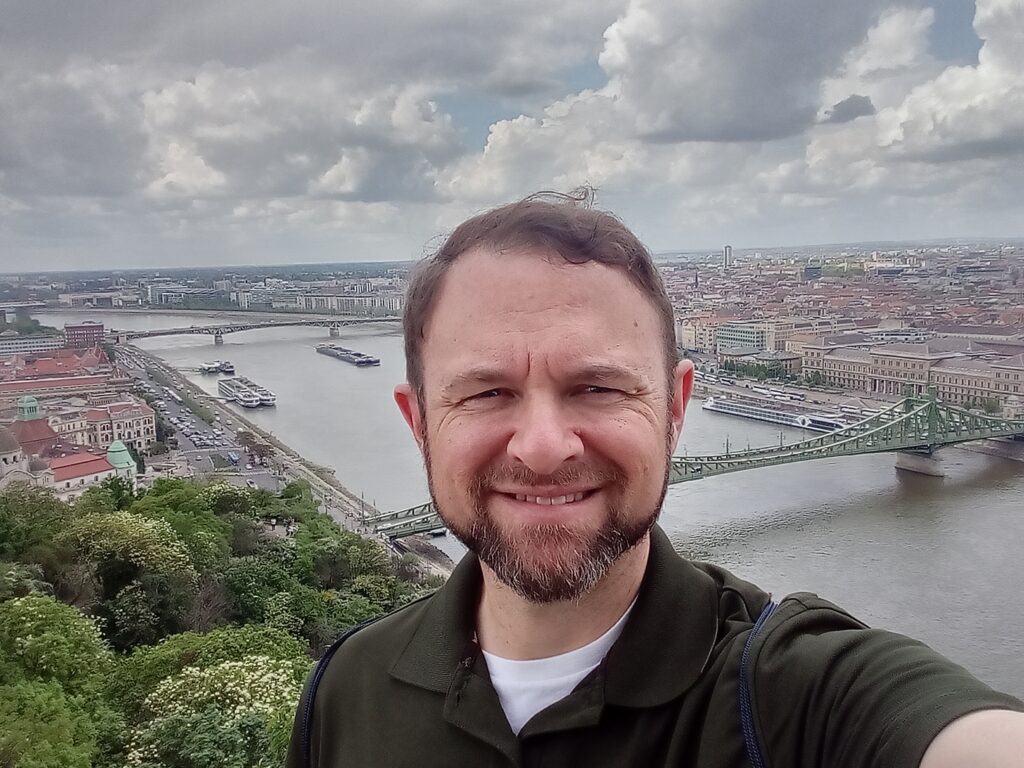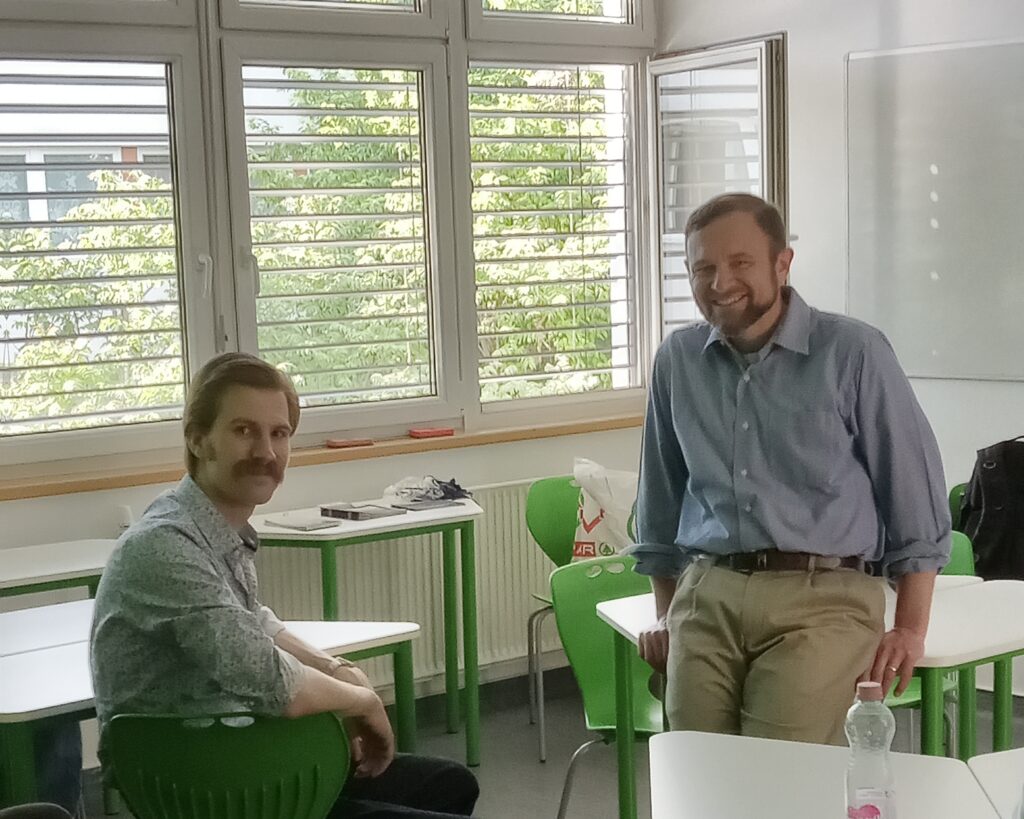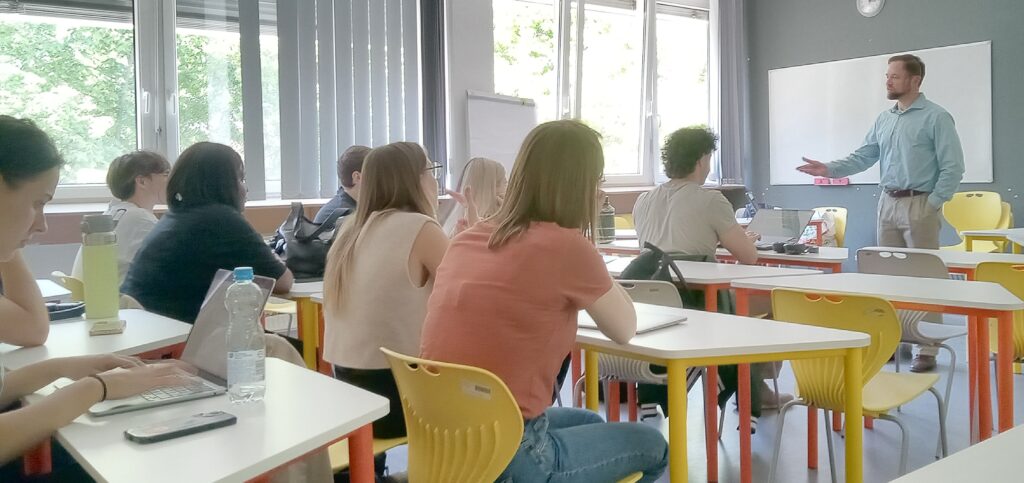
Christopher Rhoades, an Assistant Professor of Criminal Justice at Liberty University, has spent his career learning how to build trust across cultures. He spent three weeks in Hungary as a Fulbright Specialist, collaborating on a project titled “Leadership through Cross-Cultural Human Engagement.” Specifically, he lectured on human behavior to international relations students at Budapest Metropolitan University (BMU).
“Human behavior is about knowing what we can process with our brains, the sensory inputs that we have, and understanding what our limitations are, how this might hinder the observation of a situation,” Rhoades explains. “And whether it’s in Kandahar or Kansas, whether it’s in Bogota, Boston, or Baghdad, human behavior is human behavior, and people are the same everywhere.”


Rhoades’s combination of military and academic experience made him an ideal fit for BMU, which wanted to provide students with real-world perspectives on cross-cultural leadership and human behavior analysis.
He began his path to military service as an ROTC cadet at Missouri State University. After college, he served in Iraq as a second lieutenant in the military police corps, and later transitioned to a civil affairs unit—the U.S. Army’s primary force for civilian engagement. He then worked as a contractor overseas, teaching human behavior courses for the U.S. Department of Defense before joining Liberty University in 2014 as a senior military science instructor for the ROTC program. Today, he is an Assistant Professor of Criminal Justice, while also working toward a doctorate in the same field. Liberty’s Fulbright Scholar Liaison and Fulbright alumna Dr. Edna Udobong learned of his unique background and encouraged him to apply.
While in Hungary, Rhoades worked with BMU faculty to shape his curriculum to align with their institution’s interests and specific requirements for course content.
“How does human behavior and pattern recognition and analysis all feed into this particular point in the learner’s experience in this course? How do you deal with international negotiations in a cross-cultural context? That was one way that I angled the curriculum,” he says. “In another course, we talked about international security agencies, and I shared my experience with the Army and private contracting.

“One of my guest lectures talked about public diplomacy and how human behavior relates to a diplomat who must understand what they can give and what they can take when advocating for their countries. I can’t say enough about the support that I got from the dean and the faculty there in shaping my lectures—they were just absolutely phenomenal.”
Rhoades is excited to share his new perspectives and professional connections with students and fellow faculty at Liberty, facilitating future participation in academic exchanges. “I now have a better understanding of the cultural exchange ecosystem,” Rhoades says. “If a student wants to write a thesis on how police are trained in a former Eastern Bloc country or if a student wants to do an online talk about a NATO security situation, I can now connect them to faculty in Hungary … or facilitate student exchanges for Liberty students.”
Rhoades stresses that enabling Liberty students to build relationships with fellow students and professors from other countries is imperative to developing their world perspective. He sees this as critical for students as they prepare to enter the workforce and, ultimately, for America’s global relationships.
“The U.S. government made an investment to train and deploy me around the world. It was an important experience for me, and I’ll cherish it – and the relationships that I built – for the rest of my life,” he says. “But if there are ways that we can build relationships ahead of time before we have to deploy into a country and make those micro-level investments, as we used to call them in the civil affairs realm, I think that’s going to yield the biggest bang for the buck and make [the United States] more secure.”
The Fulbright Specialist Program, a short-term complement to the Fulbright U.S. Scholar Program, sends more than 400 experienced U.S. faculty and professionals abroad annually to serve as expert consultants and engage in education and/or training activities for a period of two to six weeks. Specialists, who represent a wide range of professional and academic disciplines, are competitively selected to join the Fulbright Specialist Roster based upon their expertise and ability to make a significant contribution to institutions abroad. Individuals on the Roster are then eligible to be matched with approved projects, which are proposed by eligible overseas institutions.